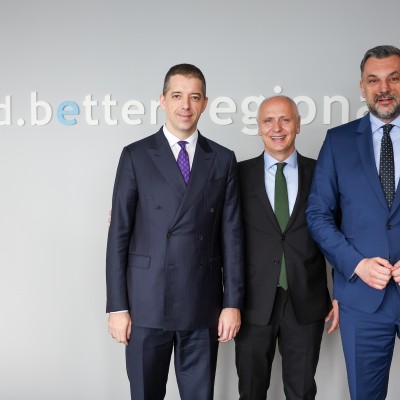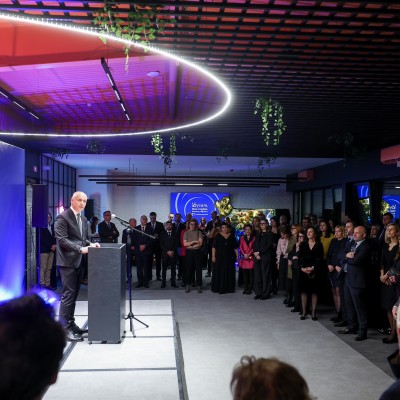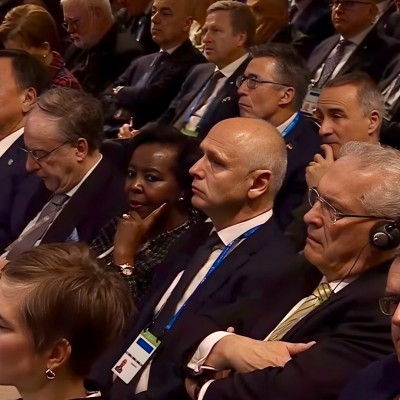RCC Secretary General at the 10th Western Balkans Civil Society Forum in Budva
13 May 2025
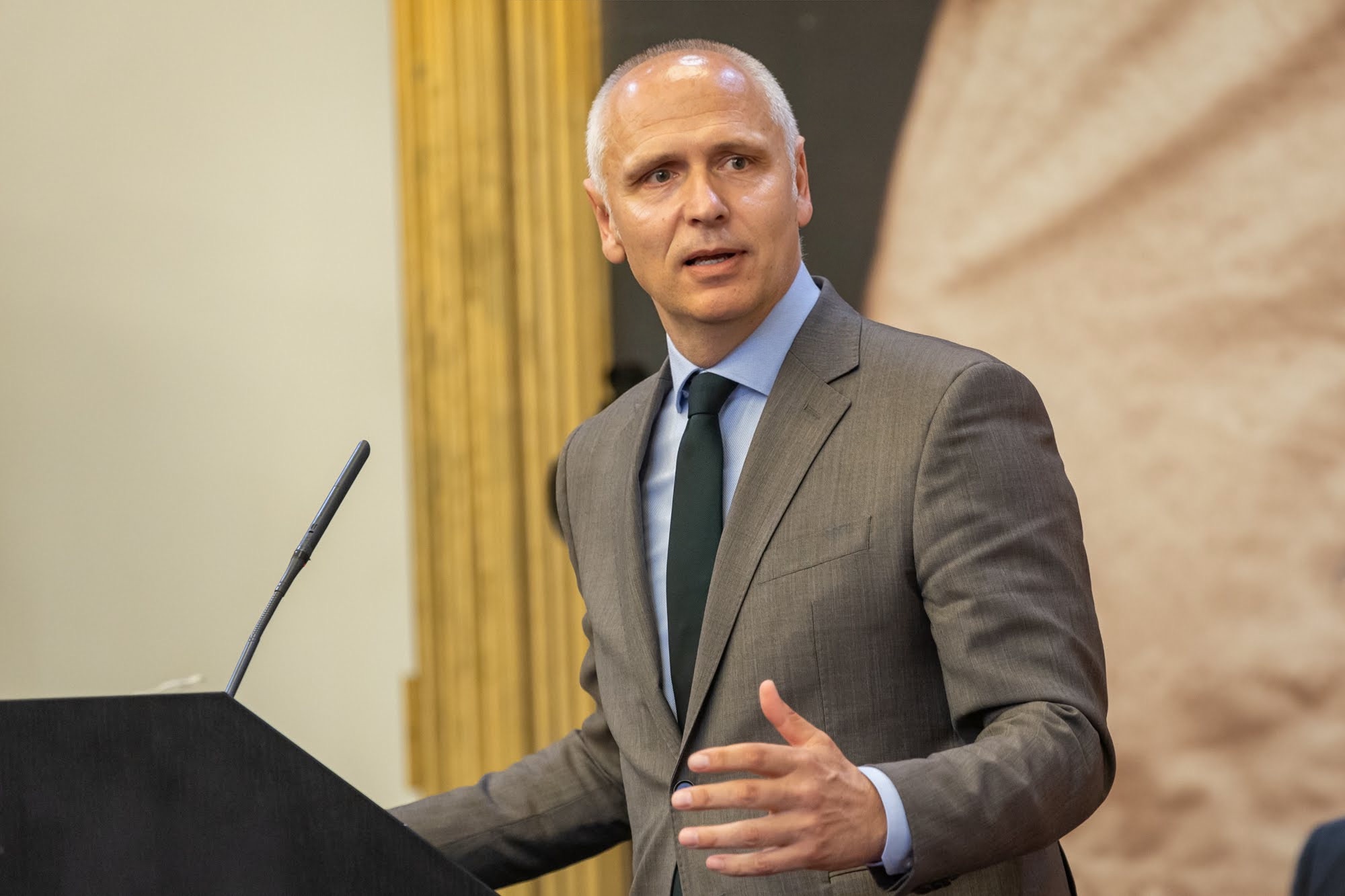
RCC Secretary General Amer Kapetanovic opening the 10th edition of the Western Balkans Civil Society Forum, in Budva on 13 May 2025 (Photo: RCC/Danilo Papic)
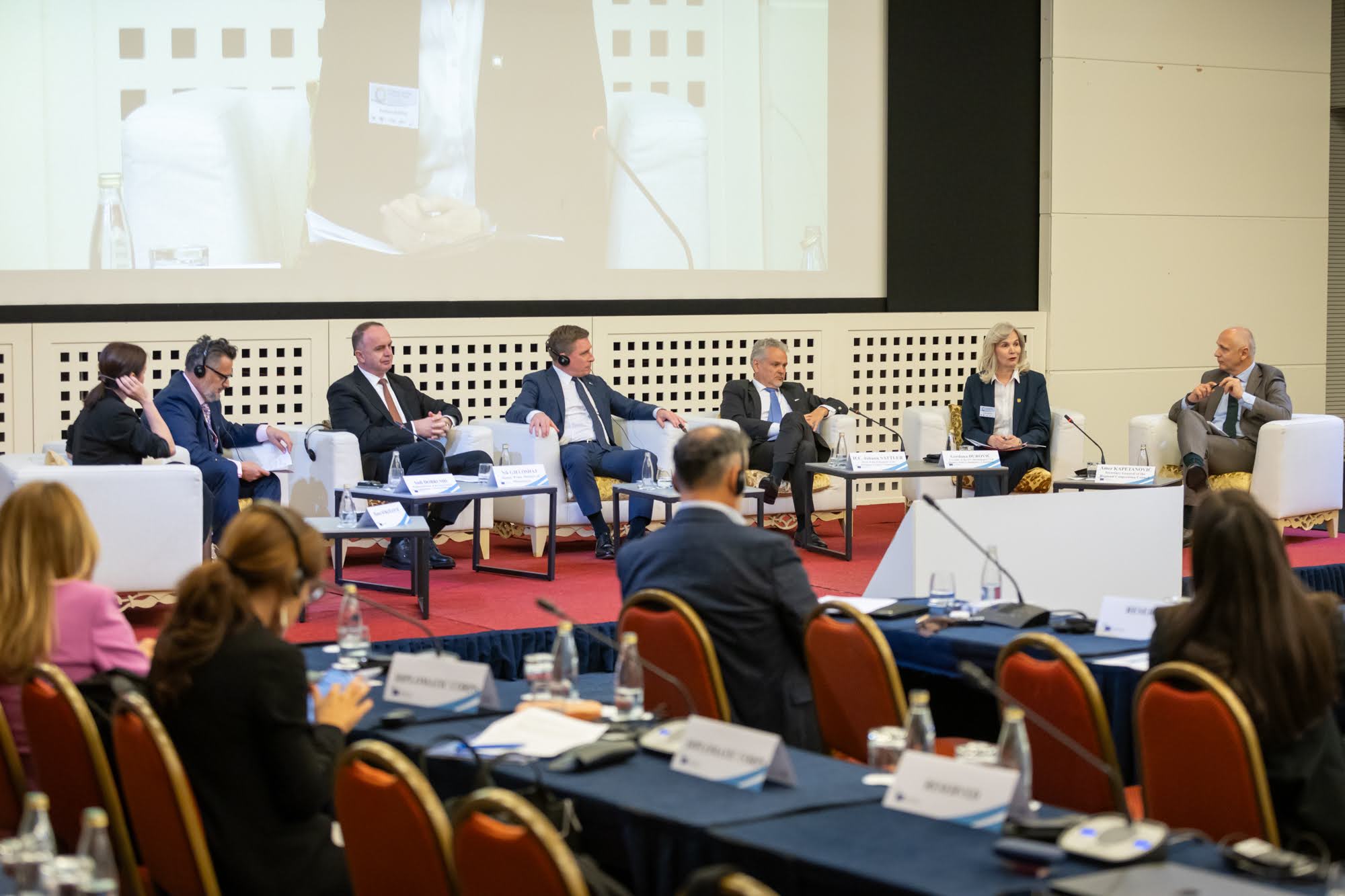
10th edition of the Western Balkans Civil Society Forum, organised by the European Economic and Social Committee (EESC), with support from the European Commission, Open Society Foundations – Western Balkans (OSF-WB), Western Balkans Fund (WBF), and the Regional Cooperation Council (RCC), opened in Budva on 13 May 2025 (Photo: RCC/Danilo Papic)
The Forum Is a Platform to Accelerate EU Convergence and Regional Cooperation
Budva – The 10th edition of the Western Balkans Civil Society Forum, organised by the European Economic and Social Committee (EESC), with support from the European Commission, Open Society Foundations – Western Balkans (OSF-WB), Western Balkans Fund (WBF), and the Regional Cooperation Council (RCC), opened today in Budva. The Forum is bringing together more than 100 participants from across the region to discuss how to accelerate socio-economic convergence with the European Union and improve the quality of life for citizens. The two-day event provides a space for dialogue among governments, civil society, trade unions, employers, and EU institutions.
Opening the event were high-level representatives including Amer Kapetanović, RCC Secretary General; Nik Gjeloshaj, Deputy Prime Minister of Montenegro; Johann Sattler, Head of the EU Delegation to Montenegro; Gordana Đurović, Co-chair of the EU-Montenegro Civil Society Joint Consultative Committee; Oliver Röpke, EESC President; and Andi Dobrushi, OSF-WB Regional Director. The event also featured video messages from Marta Kos, European Commissioner for Enlargement, and Roxana Mînzatu, Executive Vice-President for Social Rights and Skills, emphasising the critical role of civil society and social partners in the EU accession process and in implementing the European Pillar of Social Rights.
Speaking at the Forum, RCC Secretary General Amer Kapetanović highlighted the need for faster convergence. “Regional cooperation is no longer a nice-to-have; it’s a need-to-do. While our GDP per capita has risen from 25% to 39% of the EU average over the past two decades, at this pace we won’t catch up until the 2080s. That’s where the Common Regional Market comes into focus, with the potential to unlock up to 10% GDP growth through reforms in green lanes, instant payments, consumer protections, and more. Importantly, over 500 civil society organisations have helped shape these reforms. Real change happens when people are part of the process.”
EESC President Oliver Röpke noted that the “Forum sends a strong signal: the future of the Western Balkans lies in the European Union, and civil society must be at the heart of that journey”.
Andi Dobrushi of OSF-WB added that “EU integration must reflect real convergence of values and opportunities. Civil society in the Western Balkans is already helping co-design our shared European future. On this path, civil society deserves a place at the table”.
The Forum continues on 14 May, with contributions from Pilvi Torsti, Director of the European Training Foundation (ETF); Naida Nišić, Minister of Labour, Employment and Social Dialogue of Montenegro; and Željko Jovanović, President of the Roma Foundation for Europe. Discussions will focus on labour market transformation and the role of skills in building resilience and inclusion across the region.
The Forum will conclude with the adoption of a final declaration addressed to national governments and EU institutions.
Background
Organised every two years by the EESC’s Western Balkans Follow-up Committee, the Western Balkans Civil Society Forum is a platform for dialogue and cooperation between civil society organisations in the region. Each edition concludes with a joint declaration containing recommendations to Western Balkan governments and EU institutions.

